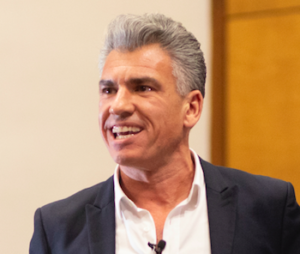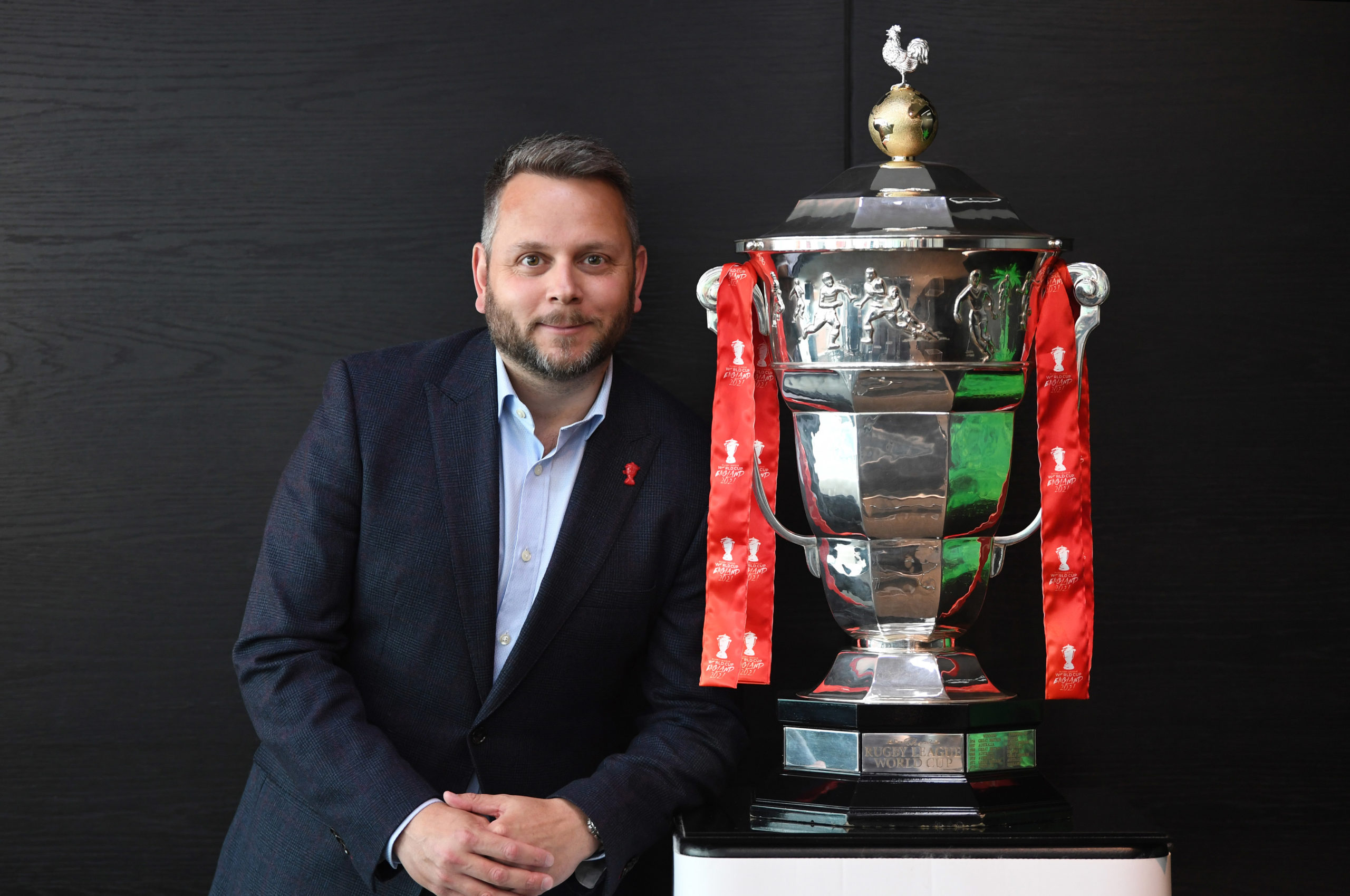Richard Pink, Ashley Holman, Nikki Samuels, Gabrielle Sims, and Asda/George children’s buyer, Ruth Golightly, are among the licensing experts taking part in a specially curated panel session at next week’s Festival of Licensing, exploring the topic of brand longevity and the multitude of factors that need to be aligned in order to nurture one.
Titled, Building a Long-Term Programme: What do Licensors Need to Do? the session will be available from 9am on Tuesday, October 6th, and will be available to view on demand for 30 days afterwards.
Licensing.biz spoke to all five ahead of the session to offer up a flavour of the topics, conversations, and conclusions that viewers and attendees of Festival of Licensing can expect from the special panel session. So settle in and get your first taste of what’s to come here. Remember, licensees can register to attend for free at www.festivaloflicensing.com.
Hello, firstly, to the four of you and thank you for taking the time ahead of what’s looking like a busy four weeks for us all!
To kick off the conversation and give us a flavour of your panel session, let’s jump right in to it. So, can you tell from the outset when a brand is going to have longevity? And if so, what are the key markings of an ‘ever green’ brand?

Richard Pink, MD, Pink Key Licensing
Richard Pink, managing director, Pink Key Licensing: I think it will always come down to the motivation and commitment of the brand owner to put the elements in place, anyone else in the licensing chain will feed off this but if it isn’t there then the brand will struggle regardless of how strong it is.
Ashley Holman, managing director, Riverside Brands: In terms of new brands launching this is very hard to tell, but if an established brand is getting into licensing for the first time it is easier to tell by looking at how they are entering the licensed market. If it is through considered, well thought out brand extensions that make sense to the core brand values, then it has a chance to build for the long term versus quick win deals that aren’t meaningful to the core values.
Nikki Samuels, CEO, Factory: Evergreen Brands understand what their consumer wants. You can’t tell from the outset if it’s going to be an ‘evergreen property’ but if the brand makes the consumer feel like a hero and positions itself as a guide there is a chance it will have longevity.
Ruth Golightly, head of buying, children’s clothing, ASDA/George: I do get a gut feeling for what will be successful in my section of retail. I engage with licensees and other buyers at my company in other categories to get their thoughts, but you never really know how much longevity brands will have as the customer now wants new and different more often.
Gabrielle Sims, head of licensing, FatFace: I’m a firm believer that a brand that has a strong identity and if it evolves with consistent and clear brand values it will always run the test of time. It’s key that brands listen, inspire and engage their core target market without compromising their values and brand promise.

Ruth Golightly, head children’s buyer, Asda/George
So looking at the big picture then, what role would you suggest each element of the brand creation process – from licensor to retailer – have to play in creating a brand with longevity?
Richard Pink: The more disparate the elements become, the more difficult it is to have a cohesive programme. The closer communication between the parties, the more a brand programme will become greater than the sum of its parts
Ashley Holman: They are all intertwined, and one doesn’t work without the other. The licensor needs to be clear on the brand positioning and what the consumer might like to see in terms of licensed extensions, as well as provide the tools needed for licensees and retailers to activate through internal resource, style guides and so on.
The licensee needs to have a good understanding of the brand, design interesting and exciting products as well as present to retail in the right way. The retailer needs to buy in to the overall concept, dedicate adequate space in store for it to be visible and not get lost on shelf and support in store where possible.
Nikki Samuels: The licensor must have a very clear strategy and a plan for the brand and who its consumer is. This must be communicated with all the licensor’s partners. If you confuse you lose, not having a clear plan is a guaranteed way to lose longevity.
Ruth Golightly: The most important thing is communication, and listening to ensure you all have similar goals, timing is also a key element.
Gabrielle Sims: All elements of the process have to play their part. It’s really important for brands to partner with the right companies and retailers that have the same vision and goals.

Nikki Samuels, CEO, Factory
So it’s communication, cohesion, and stringent planning. How then do you nurture a brand with longevity through licensing? How important is it to get this element right?
Richard Pink: This is everything and it’s all about patience and doing the right deals to enhance the brand value. Delivering a long-term strategy sometimes means turning down short term financial deals if they don’t fit.
Ashley Holman: Considered brand extensions versus label slapped quick wins is crucial.
Nikki Samuels: Brands need to be nurtured with great partners that are all working towards the same vision for the consumer. When the consumer interacts with a brand they want to know how this brand can make their lives better.
Ruth Golightly: As a retailer, it’s important that the brand has a presence across all channels – physical stores and online. At Asda we ensure we have a credible offer on George.com across many categories such as clothing, nightwear, toys, home and accessories, so that the customer can buy into the brand for every aspect of life.
Gabrielle Sims: Brands don’t evolve overnight. It takes time and a lot of love and effort. Like anything, the more time and investment you put into a brand, the more you get out of it. It’s so important to listen to your customer, gain trust, and have a clear vision on where and how you want your brand to seamlessly evolve into for licensing.
Your panel session is going to be delving into the topic of ensuring your brand has steam as a key element of creating a brand with real longevity. In such a competitive space that licensing now is, how do you ensure your brand has steam?
Richard Pink: Always go back to core brand values, as these are the things that differentiate it from other brands. Also, identify the consumer – that way you can match the two together with the right product.
Ashley Holman: Refreshing of creative and other marketing assets to keep things fresh for the end consumer, even if the brand itself remains consistent.
Nikki Samuels: Brands have to become part of a consumer’s life and be trusted. In today’s world, with so much competition, being authentic and speaking directly to the consumer, making them feel like a hero, will gain steam. Brands that position themselves as heroes don’t last long, they need to be positioned as the guide.
Gabrielle Sims: One of the hardest and challenging things to overcome these days. But if you have a strong brand, loyal customer base and you stay true to your core values, innovate and excite, you are set to come through the other end.
Do you think a brand’s staying power be curated through licensing alone?
Richard Pink: Yes, but it’s harder and there has to be a commitment to delivering everything that is necessary to provide resources to the licensing chain. That’s a how a brand like Pan Am can stay relevant, long after the planes have stopped flying.
Ashley Holman: To a degree, if the strategy is executed correctly then the licensed product itself can become so intertwined with the core brand offering that it can live on, even if the original brand heritage wanes.

Ashley Holman, MD, Riverside Brands
Nikki Samuels: Definitely not, licensing is only a part of a brand’s marketing and it’s very important that the right consumer products that fit the brand’s values are licensed. Products that don’t fit with brand values will confuse the consumer.
Gabrielle Sims: Yes, if curated properly – having key strong partners that work together and communicate is key. It’s about partnership, long term vision and investment by all.
What is it that consumers are consumers from their brands today?
Richard Pink: Value and imagination. The consumer is way too savvy for label slapping, they have strong associations for some brands, and they want them reinforced by the product they see.
Ashley Holman: Authenticity, interesting extensions and something that is relevant to the core DNA of the brand identity.
Nikki Samuels: I believe consumers want brands that they can trust and know what they are doing. They want to know if investing their time and money in this brand will be worth it.
Ruth Golightly: Customers want trust in a brand they are buying into, whether that’s knowing the ethics and sustainability ethos of a brand, or knowing that products are the right quality they expect.
Gabrielle Sims: Consumers expect so much from brands. The obvious being quality, price, loyalty, transparency and sustainability, but today brands need to be nimble and convenient too to allow for that ‘ instant’ ‘I want it now’ turn around.
How has this changed the boxes that need to be ticked to become a brand with longevity?
Richard Pink: It really hasn’t – you just have to be firm of what the appeal of your brand is (which could be many things) and keep delivering on it in spades. Oh, and keep innovating!

Gabrielle Sims, head of licensing, FatFace
Ashley Holman: It hasn’t really, those brands that have stood the test of time, especially those with extensive licensing programmes have always adhered to these principles. They may have just moved with the times in terms of new categories and marketing techniques, but the principle remain the same.
Nikki Samuels: I think that brands now have to have clear values and guide their consumers how to interact with them every day because they are making their consumer’s lives better.
Ruth Golightly: It’s not just about selling ‘stuff’ anymore, it’s about a lifestyle that customers buy into.
Gabrielle Sims: I don’t think this has ever changed I just think brands are under more pressure to deliver on all levels. Especially speed to market.
Available on demand from 0900 Tuesday 6 October at www.festivaloflicensing.com – attendees must register in advance to access the platform and all of the Festival’s content.
Building a Long-Term Programme: What do Licensors Need to Do?
Nikki Samuels, CEO, factory
Ruth Golightly, Head of Buying, Children’s Clothing, Asda/George
Ashley Holman, Managing Director, Riverside Brands
Gabrielle Sims, Head of Licensing, FatFace
Moderator: Richard Pink, Managing Director, Pink Key Licensing











